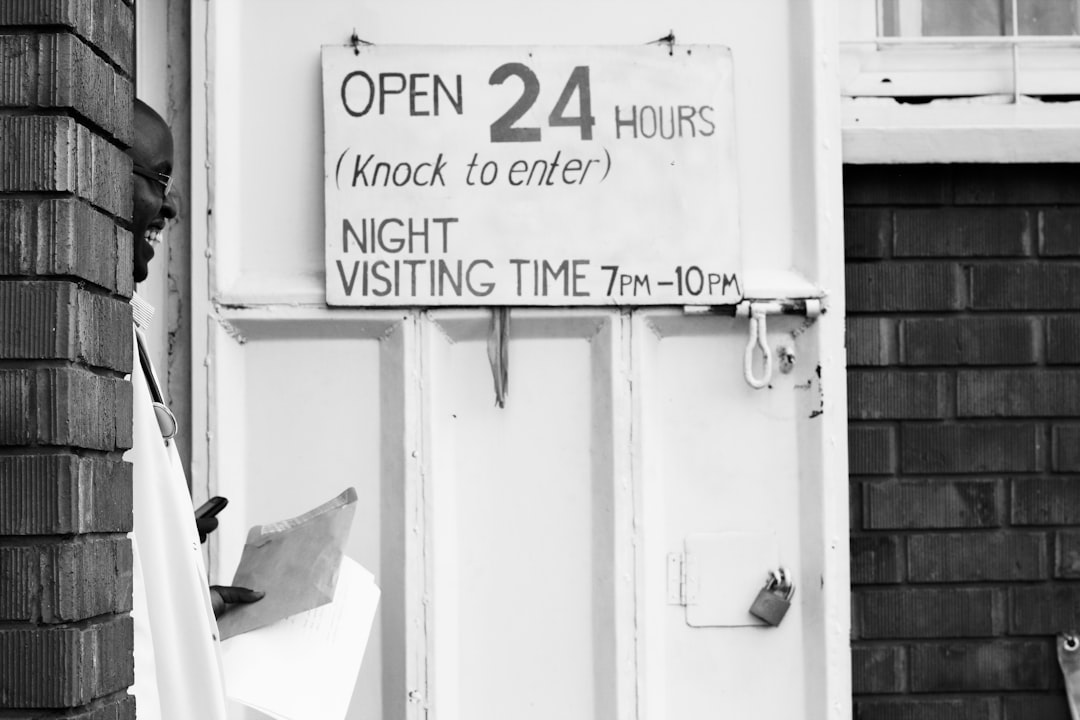Norway is renowned for its comprehensive welfare system, which extends to mental health services. The country places a significant emphasis on the well-being of its citizens, recognising that mental health is as crucial as physical health. This commitment is reflected in the robust framework of mental health services available throughout the nation.
The Norwegian government has made substantial investments in mental health care, aiming to provide accessible and effective support for individuals experiencing mental health challenges. This article delves into the intricacies of the Norwegian mental health system, exploring its structure, services, and the various ways individuals can access support. The importance of mental health services cannot be overstated, particularly in a society that values equality and inclusivity.
In Norway, there is a growing awareness of mental health issues, leading to a reduction in stigma and an increase in public discourse surrounding these topics. This cultural shift has paved the way for more individuals to seek help without fear of judgement. As we navigate through the various aspects of mental health services in Norway, it becomes evident that the system is designed not only to treat mental illness but also to promote overall mental well-being. Book your 1-hour strategy session with Norway Relocation Group.
Summary
- Norway has a comprehensive mental health system that provides a range of services for individuals in need.
- The Norwegian mental health system is based on a collaborative and holistic approach, with a focus on early intervention and prevention.
- Mental health services in Norway include outpatient clinics, inpatient treatment, crisis intervention, and community-based support.
- Accessing mental health services in Norway typically involves contacting a general practitioner for an initial assessment and referral to specialist services if needed.
- Norway offers both public and private mental health services, with the public sector playing a significant role in providing accessible and affordable care.
Understanding the Norwegian Mental Health System
The Norwegian mental health system is characterised by its integration within the broader healthcare framework, ensuring that mental health care is accessible to all citizens. The system operates under the principle of universal health coverage, meaning that all residents have the right to receive mental health services without incurring significant costs. This approach reflects Norway’s commitment to social equity and the belief that everyone should have access to necessary healthcare services.
At the core of the Norwegian mental health system is a focus on prevention and early intervention. The government has implemented various initiatives aimed at identifying mental health issues at an early stage, thereby reducing the severity of conditions and improving outcomes for individuals. This proactive approach is supported by a network of professionals, including psychologists, psychiatrists, and social workers, who collaborate to provide comprehensive care tailored to individual needs.
Understanding this framework is essential for anyone seeking assistance or wishing to support others in their mental health journey.
Types of Mental Health Services Available in Norway

Norway offers a diverse range of mental health services designed to cater to various needs and demographics. These services encompass everything from community-based support to specialised treatment facilities. One of the primary types of services available is outpatient care, which allows individuals to receive therapy and counselling without being admitted to a hospital.
This model promotes independence and enables individuals to maintain their daily routines while receiving necessary support. In addition to outpatient services, Norway also provides inpatient care for those requiring more intensive treatment. These facilities are equipped to handle severe mental health conditions and offer a structured environment where individuals can focus on recovery.
Furthermore, there are specialised programmes for specific populations, such as children, adolescents, and those with substance abuse issues. This variety ensures that all individuals can find appropriate support tailored to their unique circumstances.
How to Access Mental Health Services in Norway
Accessing mental health services in Norway is designed to be straightforward and user-friendly. Individuals seeking help typically begin by consulting their general practitioner (GP), who plays a crucial role in the referral process. The GP can assess the individual’s needs and recommend appropriate services, whether that be therapy, counselling, or further evaluation by a specialist.
This initial consultation is often covered by the national health insurance scheme, making it financially accessible. For those who may feel hesitant about visiting a GP, there are alternative routes available. Many municipalities offer direct access to mental health services through community centres or helplines, providing an opportunity for individuals to seek help without needing a formal referral.
Additionally, online resources and support groups have become increasingly popular, allowing individuals to connect with others facing similar challenges while accessing valuable information about available services.
In Norway, mental health services are primarily provided through the public healthcare system; however, private options are also available for those who prefer them. Public services are funded by taxes and are designed to be accessible to all citizens, ensuring that financial barriers do not prevent individuals from receiving necessary care. These services are often characterised by their comprehensive nature and integration with other healthcare provisions.
On the other hand, private mental health services can offer shorter waiting times and more flexibility in terms of appointment scheduling. Individuals who choose private care may have access to a wider range of specialists or alternative therapies not always available within the public system. However, it is essential to note that private services can be costly and may not be covered by national insurance.
As such, individuals must weigh their options carefully when deciding between public and private mental health care.
The Role of General Practitioners in the Norwegian Mental Health System
General practitioners (GPs) serve as the first point of contact within the Norwegian mental health system, playing a pivotal role in identifying and addressing mental health concerns. GPs are trained to recognise signs of mental illness and can provide initial assessments and support for patients experiencing emotional distress or psychological issues. Their holistic approach allows them to consider both physical and mental health factors when evaluating a patient’s overall well-being.
Moreover, GPs are instrumental in guiding patients through the healthcare system. They can refer individuals to specialised mental health services when necessary, ensuring that patients receive appropriate care tailored to their specific needs. This collaborative approach fosters continuity of care and helps build a supportive relationship between patients and their healthcare providers, ultimately enhancing treatment outcomes.
Specialized Mental Health Services for Children and Adolescents in Norway

Recognising that children and adolescents have unique mental health needs, Norway has developed specialised services aimed at supporting younger populations. These services include child and adolescent psychiatric units (BUP), which provide comprehensive assessments and treatment for various mental health conditions affecting young people. BUPs focus on early intervention and family involvement, ensuring that children receive appropriate support during critical developmental stages.
In addition to BUPs, schools play an essential role in promoting mental well-being among students. Many educational institutions have access to school psychologists or counsellors who can provide immediate support for students facing emotional or psychological challenges. This integration of mental health services within educational settings helps destigmatise seeking help and encourages young people to prioritise their mental well-being.
Mental Health Services for Adults in Norway
Adult mental health services in Norway encompass a wide range of support options tailored to meet the diverse needs of the population. These services include outpatient clinics, inpatient facilities, and community-based programmes designed to assist individuals with varying degrees of mental illness. The focus on recovery-oriented care ensures that adults can access the necessary resources to manage their conditions effectively.
Furthermore, Norway has implemented several initiatives aimed at promoting mental well-being among adults in various settings, including workplaces and community organisations. These programmes often emphasise resilience-building strategies and coping mechanisms, empowering individuals to take charge of their mental health while fostering supportive environments that encourage open discussions about mental well-being.
The Importance of Cultural Competence in Mental Health Services in Norway
Cultural competence is a vital aspect of delivering effective mental health services in Norway, particularly given the country’s diverse population. Mental health professionals must be equipped with the skills and knowledge necessary to understand and respect cultural differences when providing care. This understanding fosters trust between practitioners and clients, ultimately leading to better treatment outcomes.
Incorporating cultural competence into mental health services involves recognising how cultural beliefs and values influence an individual’s perception of mental illness and their willingness to seek help. By tailoring interventions to align with clients’ cultural backgrounds, practitioners can create more inclusive environments that promote healing and recovery while addressing potential barriers that may hinder access to care.
Support and Resources for Families and Caregivers of Those with Mental Illness in Norway
Families and caregivers play a crucial role in supporting individuals with mental illness; therefore, it is essential that they have access to resources and support systems themselves. In Norway, various organisations provide information, guidance, and emotional support for families navigating the complexities of mental health care. These resources aim to empower caregivers by equipping them with knowledge about available services while fostering connections with others facing similar challenges.
Support groups specifically designed for families can offer invaluable opportunities for sharing experiences and coping strategies. These groups create safe spaces where caregivers can express their feelings and concerns while receiving encouragement from others who understand their situation. By prioritising support for families and caregivers, Norway acknowledges the interconnectedness of mental health within families and communities.
The Future of Mental Health Services in Norway
As society continues to evolve, so too must the approach to mental health services in Norway. The future of these services will likely involve an increased focus on digital solutions, allowing for greater accessibility and flexibility in care delivery. Telehealth options have gained popularity during recent years, enabling individuals to connect with professionals remotely while maintaining privacy and convenience.
Moreover, ongoing efforts will be needed to address disparities in access to care among different populations within Norway. Ensuring that all individuals receive equitable support will require continued investment in training professionals on cultural competence as well as expanding outreach initiatives aimed at underserved communities. By embracing innovation while remaining committed to inclusivity, Norway can continue to enhance its mental health services for generations to come.
In conclusion, Norway’s commitment to providing comprehensive mental health services reflects its dedication to promoting overall well-being among its citizens. With a robust framework encompassing various types of care, accessible pathways for seeking help, and an emphasis on cultural competence, the Norwegian mental health system stands as a model for other nations striving for similar goals. As we look towards the future, it is essential that these efforts continue evolving alongside societal changes while prioritising the needs of all individuals seeking support for their mental health challenges.
Speak Norwegian with confidence. Enroll in a class at the NLS Norwegian Language School now.

